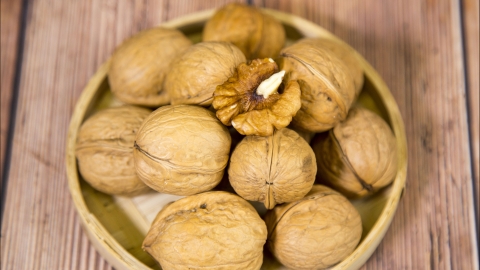Can Chinese dates and walnuts be eaten together?
Generally speaking, jujubes and walnuts can be consumed together, but in moderation. The detailed analysis is as follows:

Jujubes are rich in carbohydrates, vitamin C, iron, potassium, dietary fiber, and cyclic adenosine monophosphate (cAMP), which can supply energy, promote hemoglobin synthesis, enhance immunity, invigorate the spleen and stomach, nourish the blood, and calm the mind. Walnuts are rich in linoleic acid, alpha-linolenic acid, protein, vitamin E, B-complex vitamins, calcium, magnesium, zinc, and melatonin, which can regulate blood lipids, benefit brain function, provide antioxidant effects, nourish kidney essence, and relieve constipation.
The iron in jujubes and vitamin B12 in walnuts together promote red blood cell formation. Consuming them together can help support the regulation of qi and blood deficiency. However, they should be consumed in moderation, as both are high-calorie foods. Excessive consumption may lead to excessive energy intake and cause obesity. For individuals with weak spleen and stomach function, jujubes are rich and greasy while walnuts have high oil content; excessive consumption may hinder the digestive function of the spleen and stomach, causing bloating and diarrhea. It is recommended to consume them together with spleen-strengthening ingredients such as yam and millet.
Under normal health conditions without related contraindications, jujubes and walnuts can be consumed together. However, if the above-mentioned special conditions exist, it is recommended to consult a professional physician or nutritionist to ensure appropriate dietary combinations for maintaining health. In daily diets, attention should also be given to balanced intake of various foods, avoiding excessive consumption of any single ingredient and maintaining healthy eating habits.






